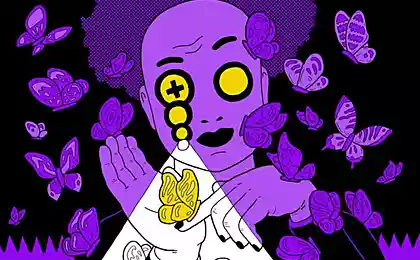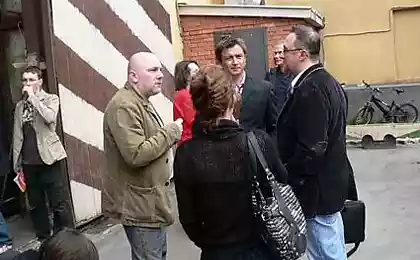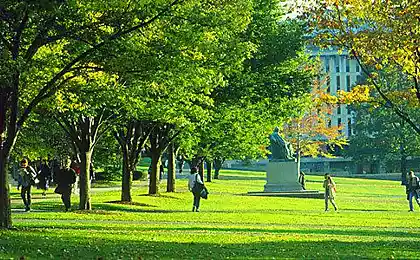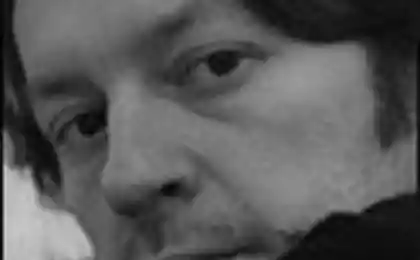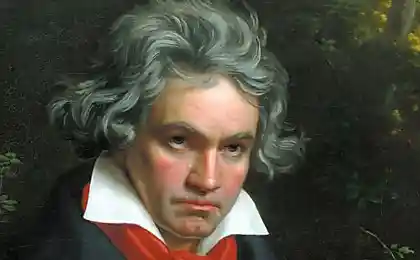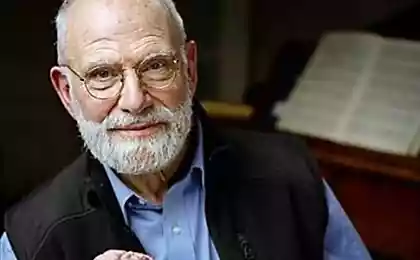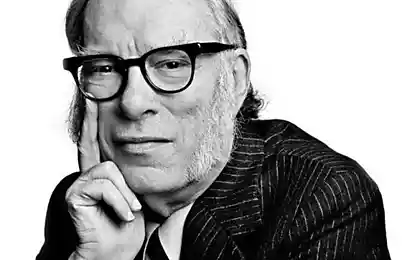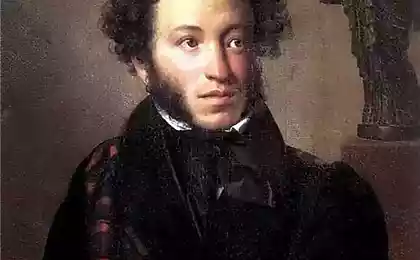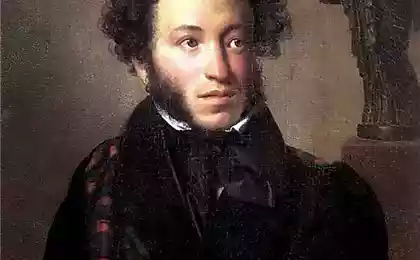511
5 essay for rethinking reality
Ninety six million six hundred forty three thousand forty six
© Brock Davis
5 essay for rethinking reality: Brodsky about boredom, wells about intellectualizing and Emerson about the credibility
A tradition essay is, first and foremost, the mobility of the Association, setting for the intimate candor and conversational tone. This is both a scientific paper and a literary essay and a philosophical treatise. T&P chose 5 important works in this genre, forcing us to take another look at things.
Seventy four million two hundred eighty seven thousand seven hundred sixty five
"In praise of boredom", a Speech delivered by Brodsky to the graduates Gemutslage College, a little like a solemn exhortation in the spirit, Stay Hungry, Stay Foolish. From the text reeks of melancholy, misanthropy and sometimes even regret about lost years.
Brodsky explains that boredom is an important attribute of human history, which is the mechanical repetition of being detrimental to the art, however, is the main instrument of the evolution and development of a purely material world. Specific recipes from boredom Brodsky does not, but explains the nature of the boredom related symptoms and warns against the main traps of her.
With all the sad irritability, with a written speech, it is about sincerity. "Praise of folly" — is routine Brodsky, poet, his creative agony and dislike of the traditional routine; and if in the text something and is trying to pretend that creative nature is a holiday, which always with you.
"Neither an exact science nor humanitarian not offer you courses of boredom. At best, they can hook you up with boredom, catching up on her. But what is casual contact, in comparison with an incurable disease? The worst monotonous drone coming from the pulpit, or smeraldi ever trusty tutorial is nothing compared to the psychological Sahara that starts right in your bedroom and oppresses the horizon»
Twelve million three hundred forty thousand eighty nine
"About the mind and intellectualizing" Concise essay, wells discusses the phenomenon of the "originals", flourished towards the end of the XIX century: they, according to wells, was well-versed in all matters, had his own opinion on any issue, and most importantly — joked about everything with enviable hlestkost. According to wells, works of art, "clever" — not that other, as placed in a frame the best of their visual acuity.
Reflect on who good from these jokes (and come to the conclusion that anyone), wells swings for more extensive reasoning about the fates of States and those who stand in their head. "I assure you, reasonable is the opposite of great. The British Empire, as the Roman, created by fools. And it is possible that the pundits will destroy us," writes wells, and then in the same paragraph explains the kinship of great art with the ability to avoid the petty ego, the manifestation of which is intellectualizing.
Naive wells believed that the end of the XIX century — the last refuge of "being smart", but as history has shown, the gentleman with his "ability to be generous-trivial" is history now, replaced by a wit as the highest manifestations of the human spirit.
"I guess the era of smart experienced its last flowering. People have long been dreaming of peace. Soon the average person will look like the shaded area on the exhausted heat of the earth. Mediocrity is the new genius. And then, raise the head of round-faced and sleepy literature, literature huge goals and big shapes, full-bodied and peaceful"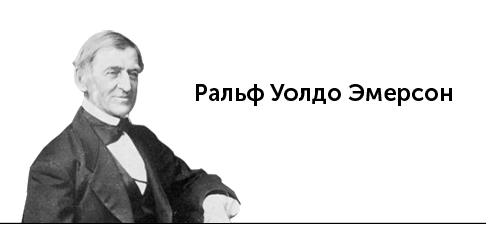
"Credibility"in Order to understand where the legs grow from today's environmental activists in all their diversity (from defenders of the whales and ending with those who, contrary to common sense sorts out the rubbish in your kitchen), it is enough to read a collection of essays Emerson's "Nature". However, to take it in a purely materialistic context is not: it is like no other, trying to understand what is the human mind, or even consciousness.
A student of Emerson (and later, his gardener) Henry Thoreau by reading the work of his mentor, was in fact the first ekoposeleniy, having gone to live in the forest. In a sense, his act very clearly expresses the idea that human reality is flawed in the first place because the people themselves disown their own nature. For Emerson it was also important to define the notion of human nature not habits that prevail during life, but the subconscious desire for the beautiful, leading through thickets of human traditions and misconceptions.
"Man is a creature fearful, always excuses; he no longer dares to say "I think" and "I believe", but is covered by the authority of some famous Saint or sage. He should be ashamed at the sight of the escape of grass or roses in bloom. Here these roses, growing in my window, not justify their existence nor the fact that here too grew the roses, nor the fact that there are more beautiful specimens; they are what they are, they live today, and live with God»
Sixty eight million nine hundred fifty two thousand five hundred ten
"Tradition and individual talent" In key essays from the collection "the Purpose of poetry," Eliot muses on the two components of poetry: the personal feeling of the author, bringing your personality to work, and also about the literary tradition in which the author exists. The key idea of the essay, if you try to squeeze it into the framework of one awkward phrase, — the value of emotions that arise inside of the work (it is, according to Eliot, the fruit of the author's attempts to escape from what he feels in his usual reality).
The genius of the "Traditions..." in that clearing seemed to be just poetry, Eliot covers the whole literature, but if you think about it, all art. And in virtuoso simple definition of the difference between good and bad poets, which is a conscious or unconscious approach to creating: a good poet, I'm sure Eliot prefers consciousness as a more subtle sphere.
"No poet, no artist of your art, taken by itself, does not exhaust its value. Its importance, its evaluation is the assessment of its relationship to the poets and artists of the past. It is impossible to evaluate him alone, must, for contrast and comparison, to consider it in comparison with the predecessors. I think it's a principle of aesthetic, not only of historical criticism»
Six million four hundred seventy eight thousand eight hundred fifty five
"The work of art in the age of mechanical reproduction" In small — only a few pages of the essay Benjamin raises, in General, all major issues about the art of "then" and "now". About how we perceive art in General. About how to change this perception for centuries. About the art of Lee photography — and how it changed the understanding of art in General with the advent of photography. How to assess the proverbial "technical reproducibility" in the context of the value of individual works.
Answers as such, Benjamin's no, but the way he chose to explain his position quite eloquently replaces all the lengthy discourse that could appear, had he asked himself the trouble to answer. By and large, in order to understand the passion the author quite a few times in a row to read a single sentence of his essay: "the Orientation of reality on the masses and the masses to reality is a process whose influence on thinking and on the perception of the infinite."
"The amazing growth of our technical capabilities, acquired flexibility and accuracy allow to assert that in the near future in the ancient industry of the beautiful will happen profound changes. You need to be prepared for the fact that such significant innovations to transform the entire technique of the arts, thereby exerting influence on the process of creativity and perhaps even change miraculously, the very notion of art"
published
Source: theoryandpractice.ru
© Brock Davis
5 essay for rethinking reality: Brodsky about boredom, wells about intellectualizing and Emerson about the credibility
A tradition essay is, first and foremost, the mobility of the Association, setting for the intimate candor and conversational tone. This is both a scientific paper and a literary essay and a philosophical treatise. T&P chose 5 important works in this genre, forcing us to take another look at things.
Seventy four million two hundred eighty seven thousand seven hundred sixty five
"In praise of boredom", a Speech delivered by Brodsky to the graduates Gemutslage College, a little like a solemn exhortation in the spirit, Stay Hungry, Stay Foolish. From the text reeks of melancholy, misanthropy and sometimes even regret about lost years.
Brodsky explains that boredom is an important attribute of human history, which is the mechanical repetition of being detrimental to the art, however, is the main instrument of the evolution and development of a purely material world. Specific recipes from boredom Brodsky does not, but explains the nature of the boredom related symptoms and warns against the main traps of her.
With all the sad irritability, with a written speech, it is about sincerity. "Praise of folly" — is routine Brodsky, poet, his creative agony and dislike of the traditional routine; and if in the text something and is trying to pretend that creative nature is a holiday, which always with you.
"Neither an exact science nor humanitarian not offer you courses of boredom. At best, they can hook you up with boredom, catching up on her. But what is casual contact, in comparison with an incurable disease? The worst monotonous drone coming from the pulpit, or smeraldi ever trusty tutorial is nothing compared to the psychological Sahara that starts right in your bedroom and oppresses the horizon»
Twelve million three hundred forty thousand eighty nine
"About the mind and intellectualizing" Concise essay, wells discusses the phenomenon of the "originals", flourished towards the end of the XIX century: they, according to wells, was well-versed in all matters, had his own opinion on any issue, and most importantly — joked about everything with enviable hlestkost. According to wells, works of art, "clever" — not that other, as placed in a frame the best of their visual acuity.
Reflect on who good from these jokes (and come to the conclusion that anyone), wells swings for more extensive reasoning about the fates of States and those who stand in their head. "I assure you, reasonable is the opposite of great. The British Empire, as the Roman, created by fools. And it is possible that the pundits will destroy us," writes wells, and then in the same paragraph explains the kinship of great art with the ability to avoid the petty ego, the manifestation of which is intellectualizing.
Naive wells believed that the end of the XIX century — the last refuge of "being smart", but as history has shown, the gentleman with his "ability to be generous-trivial" is history now, replaced by a wit as the highest manifestations of the human spirit.
"I guess the era of smart experienced its last flowering. People have long been dreaming of peace. Soon the average person will look like the shaded area on the exhausted heat of the earth. Mediocrity is the new genius. And then, raise the head of round-faced and sleepy literature, literature huge goals and big shapes, full-bodied and peaceful"

"Credibility"in Order to understand where the legs grow from today's environmental activists in all their diversity (from defenders of the whales and ending with those who, contrary to common sense sorts out the rubbish in your kitchen), it is enough to read a collection of essays Emerson's "Nature". However, to take it in a purely materialistic context is not: it is like no other, trying to understand what is the human mind, or even consciousness.
A student of Emerson (and later, his gardener) Henry Thoreau by reading the work of his mentor, was in fact the first ekoposeleniy, having gone to live in the forest. In a sense, his act very clearly expresses the idea that human reality is flawed in the first place because the people themselves disown their own nature. For Emerson it was also important to define the notion of human nature not habits that prevail during life, but the subconscious desire for the beautiful, leading through thickets of human traditions and misconceptions.
"Man is a creature fearful, always excuses; he no longer dares to say "I think" and "I believe", but is covered by the authority of some famous Saint or sage. He should be ashamed at the sight of the escape of grass or roses in bloom. Here these roses, growing in my window, not justify their existence nor the fact that here too grew the roses, nor the fact that there are more beautiful specimens; they are what they are, they live today, and live with God»
Sixty eight million nine hundred fifty two thousand five hundred ten
"Tradition and individual talent" In key essays from the collection "the Purpose of poetry," Eliot muses on the two components of poetry: the personal feeling of the author, bringing your personality to work, and also about the literary tradition in which the author exists. The key idea of the essay, if you try to squeeze it into the framework of one awkward phrase, — the value of emotions that arise inside of the work (it is, according to Eliot, the fruit of the author's attempts to escape from what he feels in his usual reality).
The genius of the "Traditions..." in that clearing seemed to be just poetry, Eliot covers the whole literature, but if you think about it, all art. And in virtuoso simple definition of the difference between good and bad poets, which is a conscious or unconscious approach to creating: a good poet, I'm sure Eliot prefers consciousness as a more subtle sphere.
"No poet, no artist of your art, taken by itself, does not exhaust its value. Its importance, its evaluation is the assessment of its relationship to the poets and artists of the past. It is impossible to evaluate him alone, must, for contrast and comparison, to consider it in comparison with the predecessors. I think it's a principle of aesthetic, not only of historical criticism»
Six million four hundred seventy eight thousand eight hundred fifty five
"The work of art in the age of mechanical reproduction" In small — only a few pages of the essay Benjamin raises, in General, all major issues about the art of "then" and "now". About how we perceive art in General. About how to change this perception for centuries. About the art of Lee photography — and how it changed the understanding of art in General with the advent of photography. How to assess the proverbial "technical reproducibility" in the context of the value of individual works.
Answers as such, Benjamin's no, but the way he chose to explain his position quite eloquently replaces all the lengthy discourse that could appear, had he asked himself the trouble to answer. By and large, in order to understand the passion the author quite a few times in a row to read a single sentence of his essay: "the Orientation of reality on the masses and the masses to reality is a process whose influence on thinking and on the perception of the infinite."
"The amazing growth of our technical capabilities, acquired flexibility and accuracy allow to assert that in the near future in the ancient industry of the beautiful will happen profound changes. You need to be prepared for the fact that such significant innovations to transform the entire technique of the arts, thereby exerting influence on the process of creativity and perhaps even change miraculously, the very notion of art"
published
Source: theoryandpractice.ru

